First release of Virtual Access services in the NFFA-Europe Pilot Offer

VA is a novelty in NFFA-Europe, which makes available online simulation and machine learning services, as well as data and metadata services, to the whole scientific community. The services currently target specific use cases, corresponding to the initial scientific needs they were designed for. We strongly encourage feedback and contributions by the community in order to cover new use cases and to enhance the offer!
MetaRepo
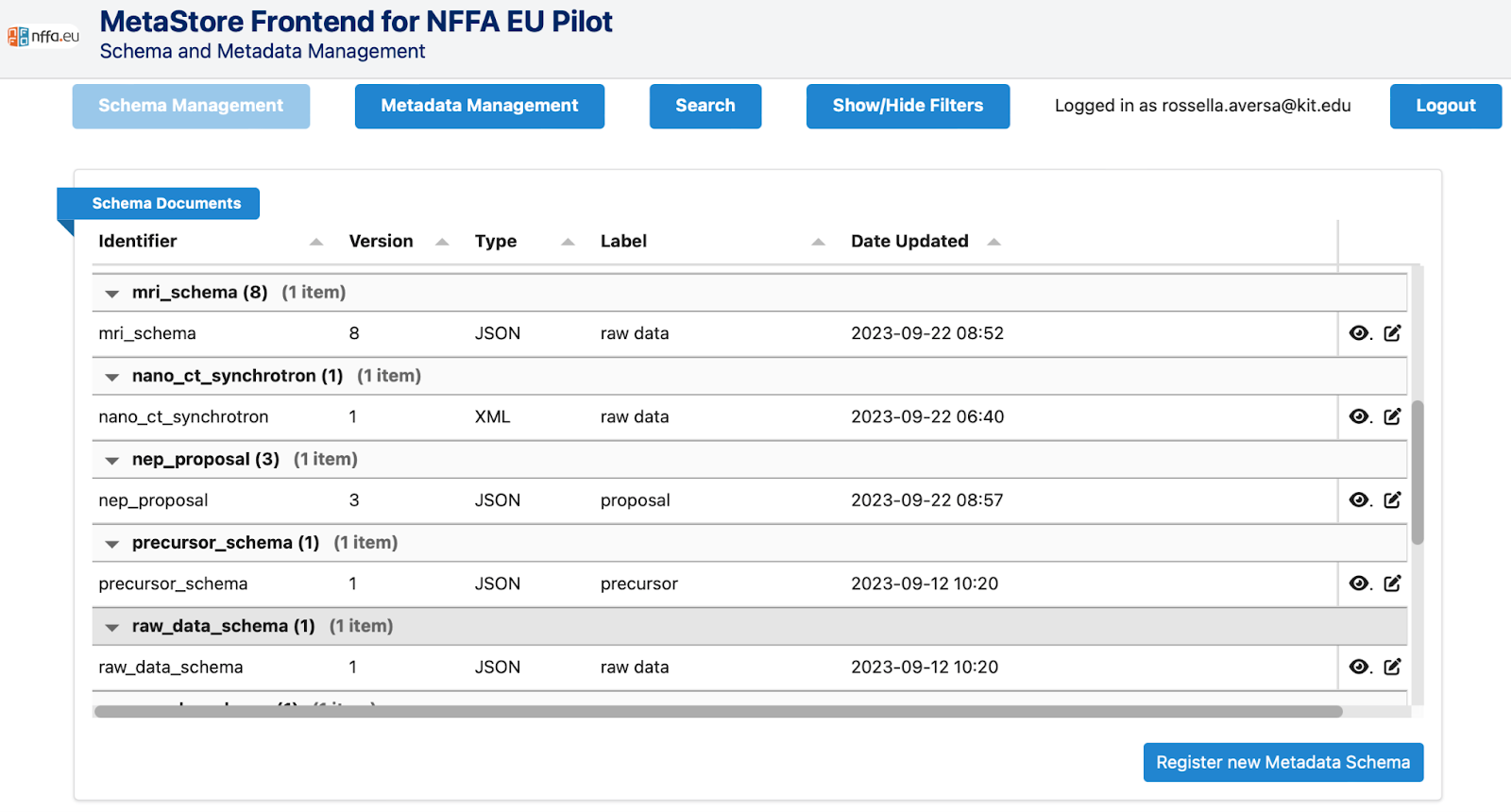
Overview of the Schema Management tab in MetaRepo
MetaRepo is a metadata repository and schema registry which allows users to validate, store, and search metadata documents linked to the data resources they describe, making them findable.
In addition to the MetaRepo GUI, a local Metadata editor has been developed to allow users who are not familiar with JSON to load the metadata schemas registered in MetaRepo, to edit their metadata documents via a friendly interface and to register them in MetaRepo.
Access the service at this link.
Contact and info on MetaRepo: Rossella Aversa, rossella.aversa@kit.edu
TriDAS
The Trieste Advanced Data Services (TriDAS) is a collection of data services based on data analytics and machine learning:
The Scanning Tunnelling Microscopy (STM) Explorer and the Scanning Electron Microscopy (SEM) Explorer offer interactive data visualisation of a database of STM and SEM images, respectively. The images were enriched with a set of meaningful metadata. This way, the users can query the database to retrieve a set of images of interest, selected according to a predefined list of common attributes. It is possible to explore and assess the images (quantile plot, scatter plot, tabular view, image rendering) before downloading them for further analysis.
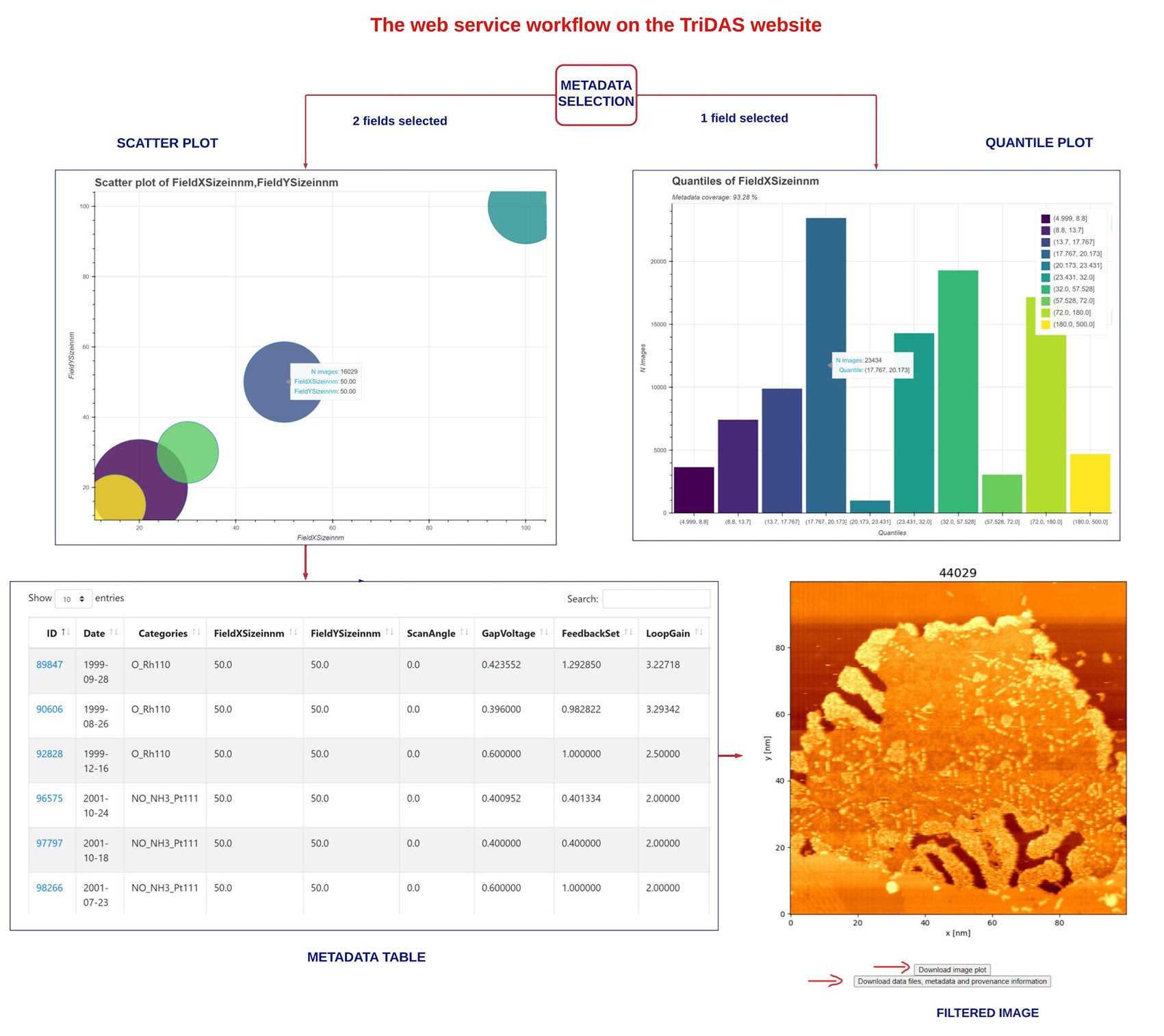
Overview of the interactive data visualisation available in the STM Explorer
The STM Similarity and the SEM Similarity employ the Content-Based Image Retrieval (CBIR). They allow the users to input an STM or SEM image, respectively, and to quickly find the most similar images relevant for their purposes from the available database.
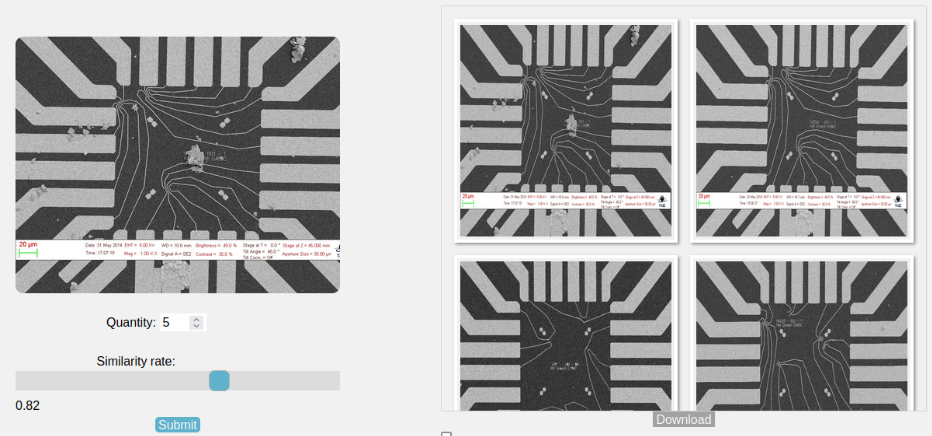
The input SEM image (left) and the most similar images (right) retrieved from the dataset by the SEM Similarity service
The SEM Classifier performs an automatic classification of the input SEM image, based on a ResNet50 model trained on a dataset of classified SEM images. The advantage provided by the service is a uniform image classification based on given categories, which optimises the data management practices, in particular the data findability.
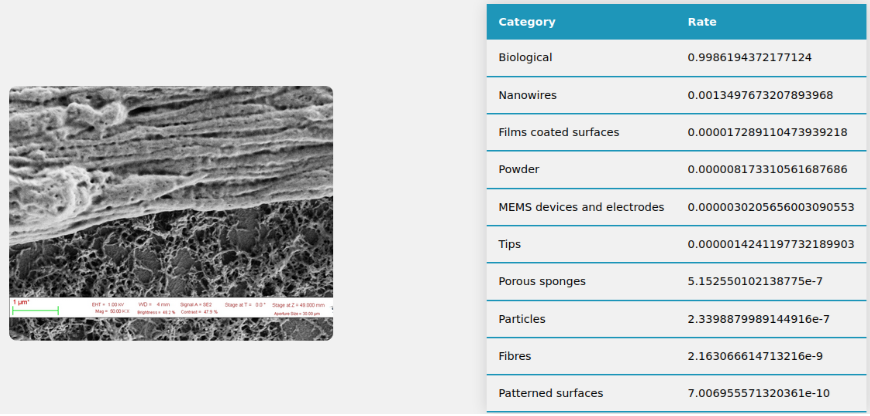
Input SEM image (left) and list of categories assigned by the SEM Classifier, sorted from the highest to the lowest rate (right)
Access and browse the services at this link.
Contact and info on TriDAS: Giuseppe Piero Brandino, brandino@exact-lab.it
Modelling and Machine Learning

Interface of the Modeling and Machine Learning services
The Predictive Service allows to predict morphological nanostructure of laser-processed surfaces from Machine Learning (ML) models, which have been trained on annotated datasets (Si, Steel 1.7131, Steel 1.7225 and Ti6Al4V). As an alternative, the tool can be used to train the ML models on new materials.
The damage threshold evaluation offers an interface to perform in a user-friendly way the evaluation of the impact of various parameters such as the photon energies, the pulse duration, the pulse separation (in case of double pulse experiments) and the material thickness on the damage threshold for various metals (Au, Ag, Cu, Al, Ni, Ti, Cr, Stainless Steel); three different substrates (Si, SiO2 and soda lime silica glass) have been considered.
Access and browse the services at this link.
Contact and info on Modeling and ML services: George Tsibidis, tsibidis@iesl.forth.gr
Materials Cloud
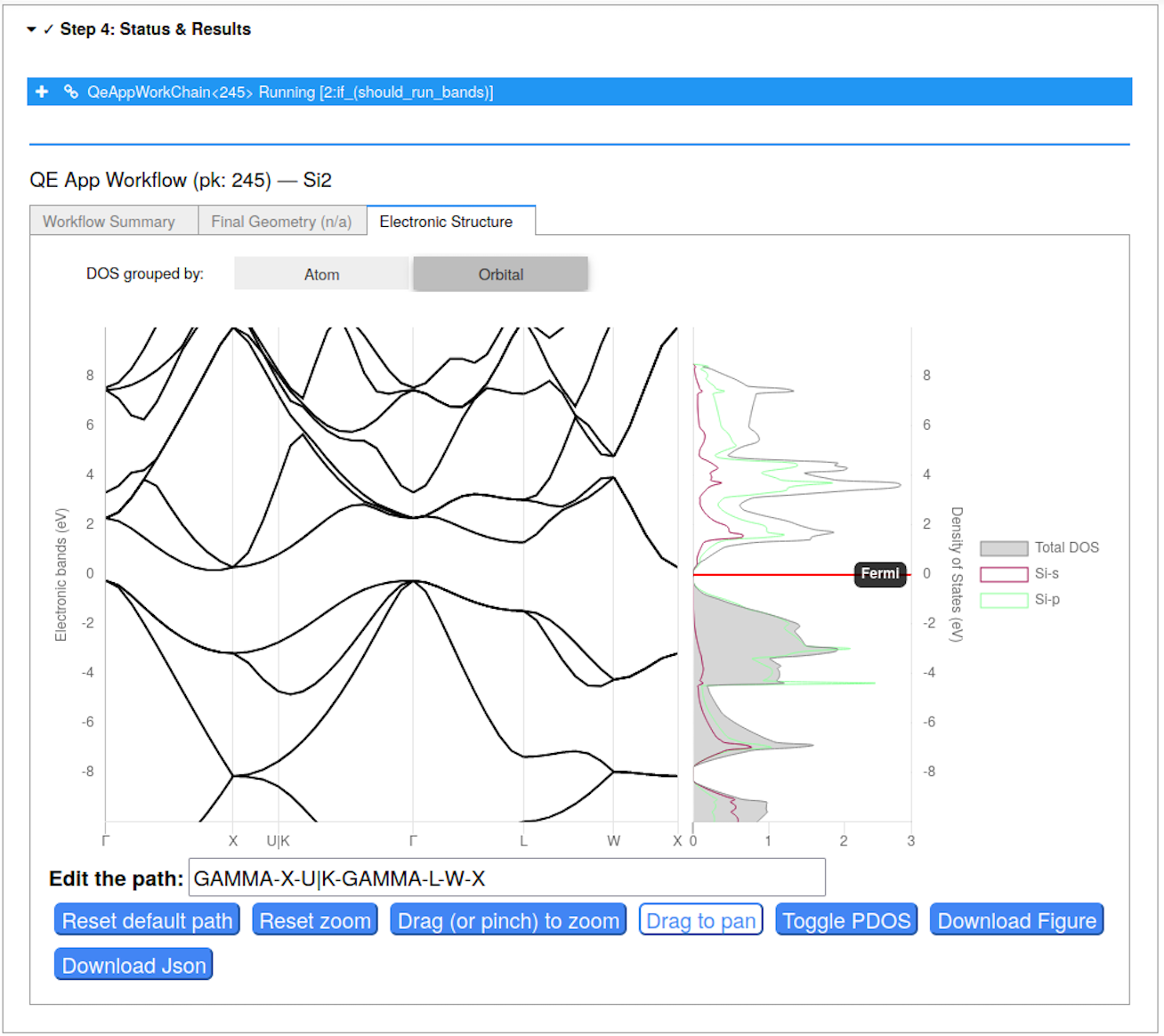
Calculated output of the AiiDAlab Quantum Espresso app
Materials Cloud hosts AiiDAlab, a lightweight web platform that provides a Jupyter-based environment pre-configured with the AiiDA materials informatics infrastructure for automated workflows and provenance tracking, as well as a number of other tools that are commonly used in computational material science. Exploiting modern web technologies, AiiDAlab grants the capability of working with advanced simulation tools to any interested researcher. The service is provided to NFFA-Europe users with a preinstalled version of the Quantum ESPRESSO code and the corresponding app, which enable users to run density-functional theory calculations using turn-key workflows and to compute properties of materials, such as the electronic band structure and the density of states and equilibrium geometries.
Access the service at this link.
Contact and info on Materials Cloud: Davide Grassano, davide.grassano@epfl.ch
The VA services are offered to authenticated users. The registration needs to be done just once on the NFFA-Europe portal; the credentials are then valid to access all the services, thanks to the Single-Sign-On.
The documentation is provided for all the services; in addition, a series of video tutorials for self-training is going to be available in the next months and a school is going to be organised in the summer 2024 to offer in-person tutorials and hands-on sessions to interested users.
The tools have been developed in the frame of NFFA-Europe Pilot project, the German Research Data Infrastructure for Materials Science NFDI-MatWerk, the Joint Lab "Integrated Model and Data-driven Materials Characterization", the SDL-Materials Science and the Helmholtz Metadata Collaboration platform.
For more info:
Rossella Aversa, VA leader, rossella.aversa@kit.edu

